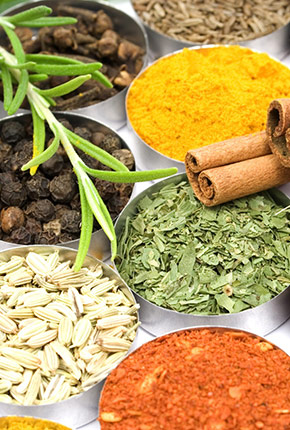The People Behind The Cleanse
About Dr. Kartar

Dr. Kartar S. Khalsa is a visionary Doctor of Oriental Medicine with over 30 years of experience in acupuncture and herbal medicine. For more than three decades, he has embraced a yogic lifestyle, personally experiencing the profound impact of these ancient techniques in restoring health, vitality, and balance. As a KRI Certified Kundalini Yoga teacher, he has guided hundreds of individuals, empowering them to harness the power of yoga for optimal health and alignment.
Driven by a passion for detoxification and holistic wellness, Dr. Kartar has become a sought-after expert in cleansing and rejuvenation. Over the past 30 years, he has supported more than 3,000 people through his renowned 10- and 40-day detox programs, including notable Hollywood actors such as Carrie-Anne Moss and prominent producers. His unique blend of Eastern medicine and yogic technology has attracted clients from all walks of life, from everyday individuals to industry elites, all seeking transformation through his proven methods.
Dr. Kartar’s journey was profoundly shaped by his spiritual teacher, Yogi Bhajan, Master of Kundalini Yoga. For eight years, Dr. Kartar was privileged to be part of the team of doctors who cared for Yogi Bhajan daily, learning invaluable lessons directly from the master himself.
At the heart of Dr. Kartar’s mission is a desire to empower people to take control of their health and live consciously. Through his dynamic detox programs and holistic approach, he helps people lead vibrant, harmonious lives, grounded in peace and well-being. Whether working with wellness seekers or Hollywood stars, Dr. Kartar is committed to guiding everyone toward a life of health, vitality, and balance.
Meet Gurudev
Gurudev has been a co-owner of The Cleanse and Deva Health since December 2019. He grew up in a healthy lifestyle of Ayurveda and Yoga. Gurudev Khalsa has been the CTO/COO and co-owner of The Cleanse and Deva Health since December 2019. Growing up in a household steeped in the principles of Ayurveda and Yoga, he has always been immersed in a healthy, conscious lifestyle. A recent graduate of Emory University with a degree in Computer Science, Gurudev blends his technical expertise with his passion for wellness to lead the company’s operations and digital presence. An athlete and avid rock climber, Gurudev embodies a commitment to health and vitality in all aspects of his life.
He is a recent college graduate from Emory University’s computer science program. He is an athlete, rock climber and super healthy conscious being.

Inspiration For The Cleanse
Ayurveda is a Sanskrit term from ancient Indian texts meaning the knowledge of life. Ayurveda deciphers life as a state of balance between body, mind and consciousness.
The two goals of Ayurveda are to keep the body in a state of health and free from disease, and show us how to use health on the path to enlightenment.

Ayurveda and yoga are two spectrums of life: Ayurveda is the healing side & Yoga is the spiritual side. Both Ayurveda and Yoga strive to help a person reconnect to their true nature through direct experience. Together they encompass a complete approach to wellness of the body, mind and spirit.
Ayurveda views health and disease as the end result of how we interact with our environment. Harmonious and balanced interactions lead to health while disharmonious or imbalanced interactions lead to disease. Ayurveda is the science of developing greater harmony with our environment through all of our senses
According to Ayurveda, we create and recreate our state of health each day based upon how we interact with the world, in terms of our beliefs, perceptions, thoughts, feelings which then ultimately determine our actions. Actions in harmony with our inner nature create health while those disharmonious with our inner nature create disease.
Your inner nature is called your constitution or Prakruti. This unique balance of energy was determined at the moment of conception and is with you the rest of your life. It determines what is in harmony with your nature and what will cause you to become out of balance, sick and diseased.
Knowledge of your constitution is essential to developing optimal health. Your constitution determines how you react to various foods, colors, aromas and general life habits.
Your constitution is the fundamental and unique balance of three basic energies called doshas. They are Vata, Pitta and Kapha.
The balance in each individual is different; hence each individual has his or her own special set of challenges and gifts. For this reason no two programs are identical, and each person’s path toward optimal health is unique.

The Three Doshas
Explore the different aspects and learn more.

The Vata dosha is made up of the air and ether elements. This means that it has qualities that are similar to these elements. Vata is very much like the wind – it is light, cool, dry and mobile. People with a Vata nature experience bodies that are light, bones thin and skin and hair dry. They often move and speak quickly. When out of balance, they may lose weight, become constipated, experience insomnia and have weakness in their immune and nervous systems.
Those with a Vata nature, tend to be talkative, enthusiastic, creative, flexible, and energetic. Yet, when out of balance they may also become easily confused and overwhelmed and have difficulty focusing or making decisions. This becomes more apparent when they are under stress. They are challenged by emotions like worry, fear and anxiety.
In order to bring balance to Vata, programs are designed that emphasize the opposing qualities of warmth, heaviness (nourishment), moistness and stability. In the diet, this is reflected in the consumption of cooked grains, such as grains and cooked vegetables, as well as the intake of warm beverages with spices. Pungent herbs, like ginger, that increase internal heat and nourishing herbs, like Ashwaganda, bring balance to Vata.
The Pitta dosha is made up of the fire and water elements. Fire is more predominant. Pitta tends to be hot, sharp and penetrating. It is also somewhat volatile and oily. The oily nature of Pitta is related to the secondary component of water. People with a Pitta nature reflect these qualities. They tend to feel warm, have a somewhat oily skin, penetrating eyes, and sharp features. They tend to have moderate weight and good musculature. When out of balance, they tend toward diarrhea, infections, skin rashes, inflammation and weakness in the liver, spleen and blood.
Pitta people tend to be highly focused, competitive, capable, courageous, energetic, and clear communicators who get right to the point. They like to solve problems, and, when under stress, they dig in their heels. However, they can also become overly intense and speak with a sharp tongue. They make great friends but feared enemies. Emotionally, they are challenged by the heated emotions of anger, resentment, and jealousy. In order to bring balance to Pitta, programs are designed to emphasize the opposing qualities of coolness, heaviness (nourishment) and dryness. Cool spices, like fennel, are recommended in the diet, along with foods such as raw vegetables, cooked rice, and wheat, as well as most beans. Sweet herbs like Shatavari are used to nourish the body, while bitters like dandelion root temper the fire.
Within the Kapha dosha there is a predominance of the water and earth elements. Like these elements, Kapha tends to be cool, moist, stable, and heavy. In the body, these qualities manifest as dense, heavy bones; lustrous, supple skin; low metabolism; and large, stocky frames. In addition, those with a Kapha nature tend to feel cool. When out of balance, Kapha individuals are prone to gaining weight and tend to have weaknesses in their lungs and sinuses where there is an accumulation of mucous. The elements of water and earth are also manifested in the personality.
The heavy, stable nature of Kapha is reflected in a steady personality that is not prone to quick fluctuations. Those with a Kapha nature handle stress very well, often not even noticing that it exists. They don’t like change, are generally conservative, and would prefer to keep things just the way they are. Those with a Kapha nature are also comfort seekers. This relates to the soft, watery nature of Kapha.
Too much comfort, however, can lead to a lack of motivation and a feeling of becoming stuck. When Kapha is out of balance, the heavy emotions of depression and lethargy result. In order to bring balance to a Kapha nature, the opposing qualities of lightness, dryness, and warmth are recommended. Grains such as quinoa, millet and amaranth are recommended, as well as hot spices like cayenne pepper. Lots of vegetables and very little nuts and dairy are recommended to balance Kapha.
Cleanse with us!
Our programs have been formulated and doctor designed to give you back your vibrancy and change your life by giving you a fresh start and the tools to integrate these changes permanently.